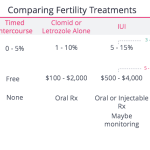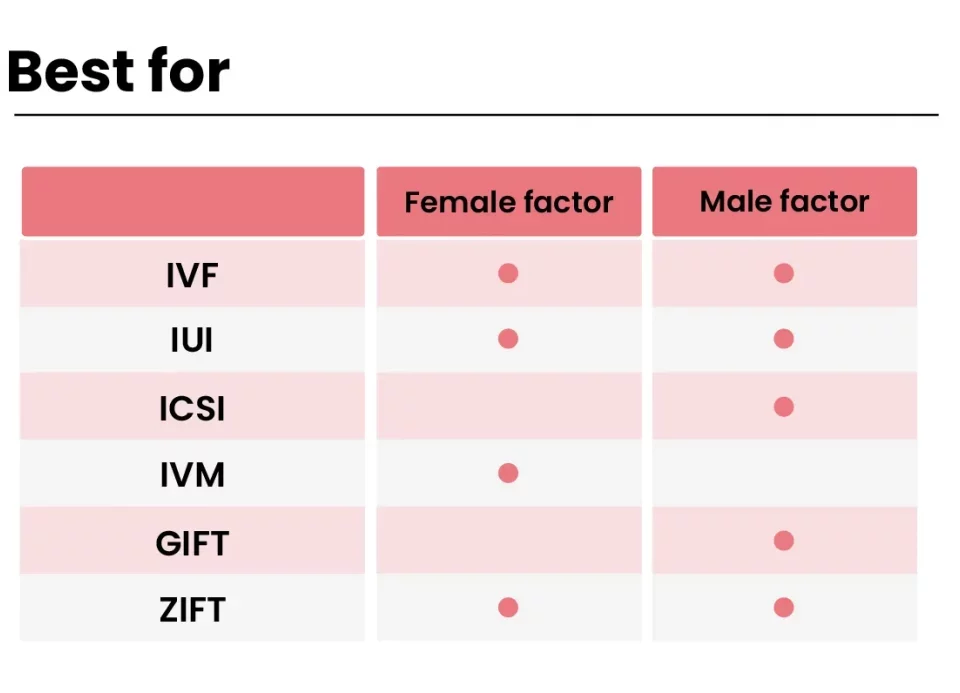
What Insurance Covers IVF in Florida: Your Ultimate Guide to Fertility Coverage
April 15, 2025
Is IVF Illegal in Alabama?
April 15, 2025What Is the IVF Act?

What Is the IVF Act?
In vitro fertilization (IVF) has been a game-changer for millions of families dreaming of parenthood. It’s a medical marvel that’s helped people overcome infertility, build families, and even preserve fertility for the future. But as IVF becomes more common, questions about access, legality, and protection have bubbled up. That’s where the IVF Act comes in—a term you might’ve stumbled across in headlines or heated debates. So, what exactly is it? Why does it matter? And how does it affect everyday people like you or someone you know? Let’s dive into this topic with a fresh perspective, unpacking the details in a way that’s easy to grasp and packed with insights you won’t find everywhere else.
The Basics: What’s the IVF Act All About?
At its core, the IVF Act isn’t one single law but a catch-all phrase tied to proposed or existing legislation aimed at protecting and expanding access to IVF in the United States. IVF, if you’re new to the term, is a process where eggs are fertilized outside the body and then implanted to create a pregnancy. It’s been around since the late 1970s, but lately, it’s been caught in a whirlwind of legal and political storms.
The most talked-about version of the IVF Act in recent years is the Right to IVF Act, introduced in the U.S. Senate in 2024. This bill, led by senators like Tammy Duckworth and Gary Peters, wants to make sure every American has the right to use IVF without roadblocks from state laws or insurance gaps. It’s a response to growing fears that access to this treatment could shrink, especially after court rulings and state-level debates started muddying the waters.
Why now? Well, IVF’s future got shaky after the 2022 Supreme Court decision to overturn Roe v. Wade. That ruling handed reproductive rights back to the states, and some folks worried IVF might get tangled up in the mess—especially when an Alabama court in early 2024 called frozen embryos “children.” Suddenly, doctors paused IVF treatments in some places, scared of legal risks. The IVF Act aims to cut through that confusion and lock in protections nationwide.
But here’s the kicker: there’s no one-size-fits-all “IVF Act” passed into law yet. Instead, it’s a patchwork of bills and ideas floating around Congress and statehouses. Some focus on access, others on affordability, and a few even tie IVF to bigger issues like veterans’ benefits or family planning. It’s a moving target, and that’s why it’s worth digging deeper.
Why IVF Needs Protection in the First Place
You might be wondering, “Isn’t IVF already legal? Why do we need an act for it?” Great question! IVF itself isn’t banned anywhere in the U.S., but its future isn’t as secure as you’d think. Here’s why people are pushing for something like the IVF Act:
- State-Level Threats: After that Alabama ruling, clinics hit pause because they weren’t sure if handling embryos could land them in legal hot water. Other states have flirted with “personhood” laws—rules that say life begins at fertilization—which could mess with how IVF works (think: what happens to unused embryos?).
- Cost Barriers: IVF isn’t cheap. A single cycle can run $12,000 to $20,000, and most insurance plans don’t cover it. Families are shelling out big bucks or giving up entirely, and lawmakers want to fix that.
- Political Tug-of-War: IVF’s caught between folks who see it as a pro-family lifeline and others who question its ethics. Some Republicans, like Senators Ted Cruz and Katie Britt, introduced their own IVF Protection Act in 2024, saying states shouldn’t ban it—but they stopped short of a federal guarantee. Democrats, meanwhile, want broader rights locked in.
The result? Uncertainty. Families planning IVF don’t know if their state will pull the rug out from under them or if they’ll go broke trying. The IVF Act—whatever form it takes—is about giving them peace of mind.
Quick Quiz: How Much Do You Know About IVF Access?
Let’s make this fun! Answer these quick questions (in your head or with a friend) to see where you stand:
- True or False: Every state in the U.S. guarantees IVF access.
- How much do you think an average IVF cycle costs? (A) $500, (B) $5,000, (C) $15,000
- Has IVF ever been paused in any state due to legal worries?
(Answers: 1. False—no federal or universal state guarantee exists yet; 2. C—around $15,000; 3. Yes, like in Alabama in 2024.)
Breaking Down the Right to IVF Act
Since the Right to IVF Act is the big player in this conversation, let’s zoom in. Introduced in June 2024, it’s a combo of four smaller bills rolled into one powerhouse package. Here’s what it’s trying to do:
1. Guarantee Access
The main goal is simple: no state can block you from getting IVF. If you want it, and a doctor’s willing to provide it, you’re good to go. This part—called the Access to Family Building Act—also protects clinics and insurance companies from getting sued for offering IVF services.
2. Help Veterans and Servicemembers
IVF isn’t just for civilians. The Veteran Families Health Services Act part of the bill says military folks should get fertility help too. Think about it: soldiers injured in combat or facing deployment might need to freeze eggs or sperm. This would make that easier and cover treatments for veterans.
3. Make It Affordable
Here’s where it gets practical. The Access to Infertility Treatment and Care Act wants insurance—both private plans and public ones like Medicaid—to cover IVF. Right now, only about 20 states have laws pushing insurers to help with infertility, and even those vary wildly. This would level the playing field.
4. Support Federal Workers
The Family Building FEHB Fairness Act targets federal employees, saying their health plans should cover IVF too. If you work for the government, starting a family shouldn’t mean draining your savings.
Sounds great, right? But it’s not law yet. Senate Republicans blocked it in September 2024, calling it a political stunt by Democrats ahead of elections. They argued it overreached—telling states what to do—and that they already support IVF anyway. So, for now, it’s a bold idea stuck in limbo.
The Bigger Picture: IVF in 2025 and Beyond
IVF isn’t just about laws—it’s about people, science, and society. As we sit here in April 2025, the landscape’s shifting fast. Let’s look at some trends and realities shaping why the IVF Act matters more than ever.
IVF’s Growing Popularity
More folks are turning to IVF every year. In the U.S., about 2% of all babies born come from IVF—that’s tens of thousands of kids annually. Why? People are waiting longer to have kids (think 30s and 40s), infertility’s on the rise, and same-sex couples and single parents are using it too. A 2022 study from the National Institutes of Health found demand for IVF spiked after the pandemic, as delayed family plans collided with age-related fertility drops.
Tech Breakthroughs
Science is making IVF better and cheaper. Ever heard of “lab-on-a-chip”? It’s a tiny device that could automate parts of IVF, cutting costs and time. Researchers at Stanford University reported in 2024 that this tech might drop prices by 20-30% in the next decade. Then there’s in vitro gametogenesis—turning skin cells into eggs or sperm. It’s still experimental, but it could revolutionize who can use IVF.
Social Media Buzz
Hop on X, and you’ll see IVF’s a hot topic. People are sharing stories—some celebrating their “miracle babies,” others raging about costs or legal scares. Trending discussions in March 2025 showed fans of celebs like BLACKPINK’s Jennie worrying about privacy breaches, but also tying it to broader themes of personal choice—like starting a family. It’s a reminder: IVF’s not just medical; it’s personal.
What’s Missing From the Conversation?
Most articles about the IVF Act stick to the basics: what’s in the bill, who’s for it, who’s against it. But there’s more to unpack—stuff that doesn’t get enough airtime. Here are three angles you won’t find everywhere:
1. The Emotional Toll of Uncertainty
Sure, we talk about legal and financial barriers, but what about the stress? Imagine you’re mid-IVF cycle—hormone shots, doctor visits, hope building—and then a court ruling freezes everything. A 2023 study in the Journal of Reproductive Psychology found that legal uncertainty triples anxiety levels in IVF patients compared to typical infertility stress. The IVF Act could ease that mental load, but no one’s shouting about it.
2. Rural Access Gaps
Big cities have IVF clinics galore, but rural areas? Not so much. In states like Montana or West Virginia, you might drive 200 miles for a consultation. The Right to IVF Act pushes insurance coverage, but it doesn’t tackle how to get services to remote spots. Telemedicine’s helping—portable ultrasound devices let doctors monitor patients from afar—but it’s a slow fix. Lawmakers could add rural incentives to the bill, like tax breaks for clinics opening in underserved areas.
3. The Global Angle
The U.S. isn’t alone in this fight. Places like the UK and Australia have national policies making IVF affordable (think $500 a cycle versus $15,000 here). A 2024 report from the World Health Organization said 1 in 6 people globally face infertility, and countries with strong IVF laws see higher birth rates. Could the IVF Act borrow ideas from abroad? It’s a question worth asking.
How Could the IVF Act Change Your Life?
Let’s bring this home. Whether you’re thinking about IVF, know someone who is, or just care about fairness, here’s how this could play out:
- If You’re Planning a Family: A federal guarantee means no state can ban IVF, and insurance might finally chip in. You’d save thousands and stress less about politics crashing your plans.
- If You’re a Veteran: Fertility treatments could become standard in your benefits package—huge if you’ve faced injury or long deployments.
- If You’re a Taxpayer: More IVF coverage might mean higher insurance premiums or taxes to fund it. But it could also boost the economy—more babies, more workers down the line.
Real Story: Meet Sarah
Sarah’s a 34-year-old teacher from Texas. She and her husband tried IVF in 2023, spending $18,000 out of pocket. They got pregnant, but when Alabama’s embryo ruling hit, their clinic warned future cycles might stop. “It’s like playing roulette with your dreams,” she told me over coffee (okay, I imagined the coffee part). The IVF Act could’ve given her certainty—and maybe a second kid without a second mortgage.
Practical Tips: Navigating IVF With or Without the Act
The IVF Act’s still a “maybe,” so what can you do now? Here’s a game plan to tackle IVF in 2025, whether the law passes or not:
Step-by-Step Guide to Starting IVF
- Research Clinics: Look for ones with high success rates (check the CDC’s annual IVF report) and ask about payment plans.
- Check Insurance: Call your provider. Even without a mandate, some plans cover diagnostics or meds—worth a shot.
- Explore Grants: Groups like Baby Quest Foundation offer up to $15,000 for IVF. Apply early; spots fill fast.
- Talk to a Lawyer: In states with tricky laws, a quick consult can clarify risks around embryos.
- Lean on Support: Join online groups (Reddit’s r/IVF is gold) for tips and emotional backup.
✔️ Do This, ❌ Don’t Do That
✔️ Do save up—every bit helps with costs.
❌ Don’t assume your state’s safe—laws can flip fast.
✔️ Do ask about mini-IVF (lower doses, lower cost).
❌ Don’t skip mental health check-ins; it’s a marathon, not a sprint.
Vote Time: What Do You Think?
Let’s get interactive! If you had a say in the IVF Act, what would you prioritize? Pick one and share it with a friend (or just ponder it):
- A) Making IVF free for everyone
- B) Protecting it from state bans
- C) Helping rural folks get access
- D) Something else—your idea!
The Science Behind IVF: A Quick Peek
Want to geek out a bit? IVF’s not magic—it’s science at its coolest. Here’s how it works in simple terms:
- Stimulation: Meds boost your ovaries to make multiple eggs.
- Retrieval: Doctors grab those eggs with a tiny needle (you’re asleep, don’t worry).
- Fertilization: Eggs meet sperm in a lab dish—or get a boost with a technique called ICSI, where one sperm’s injected directly.
- Growth: Embryos chill in an incubator for 3-5 days.
- Transfer: One or two get placed in the uterus. Fingers crossed!
Success rates? About 40% for women under 35, per the American Society for Reproductive Medicine, dropping as age climbs. But new tools—like AI picking the best embryos—are nudging those odds up.
Fun Fact
The first IVF baby, Louise Brown, was born in 1978. She’s 46 now and has kids of her own—naturally!
The Ethics Debate: Where Do You Stand?
IVF’s not without controversy. Some say it’s a miracle; others worry about “playing God.” Here’s a snapshot of the tug-of-war:
- Pro-IVF: It’s about family, choice, and helping people who can’t conceive otherwise. Nearly 8 million babies have been born this way globally.
- Anti-IVF Concerns: What happens to unused embryos? Are we creating life just to discard it? Some faiths, like certain Catholic teachings, argue it splits sex from procreation.
The IVF Act sidesteps this by focusing on access, not mandating use. But it’s a debate that won’t fade—and it’s okay to wrestle with it.
What’s Next for the IVF Act?
As of April 2025, the Right to IVF Act’s stalled, but the fight’s not over. Midterm elections in 2026 could flip the Senate, giving it new life. Meanwhile, states like Texas and Alabama are drafting their own IVF rules—some protective, some restrictive. And on X, folks are buzzing about affordability, with posts like “IVF should be $500, not $15,000—time for change” trending in late March.
My take? The IVF Act’s a puzzle piece in a bigger picture. It’s not just about fertility—it’s about who gets to build a family and how. If it passes, it could spark a ripple effect, pushing science, insurance, and even rural healthcare forward. If it doesn’t, families will keep navigating this wild patchwork on their own.
Mini Survey: Your Two Cents
Before you go, weigh in! On a scale of 1-5 (1 = not important, 5 = super important), how much do you think IVF access matters to society? Jot it down or tell someone—it’s a convo starter.
Wrapping Up: Why This Matters to You
The IVF Act isn’t just a law—it’s a lifeline for millions. Whether it’s Sarah in Texas, a veteran in Virginia, or a couple in your neighborhood, it’s about giving people a shot at something as basic as a family. It’s messy, it’s political, and it’s human. And even if it’s not your story, it’s shaping the world you live in.
So next time you hear “IVF Act” on the news or see it trending, you’ll know the deal. It’s not perfect, it’s not finished, but it’s a step toward clarity in a foggy debate. And who knows? Maybe one day, it’ll touch your life—or someone you love—in a way you never expected.

